Niños ladrones | ¿Puede ser posible? 😱-(Spa - Eng)
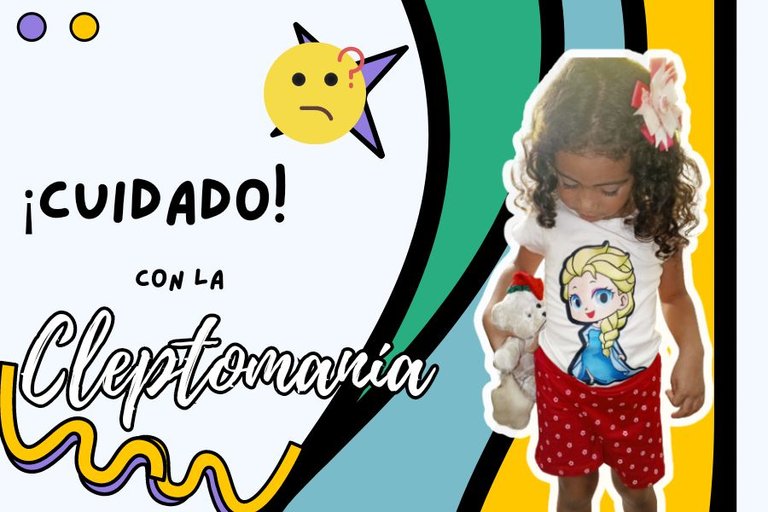
¡Hola gente bella!
que bueno poder encontrarnos nuevamente, feliz inicio de semana tengan todos, que la vida nos sorprenda con cosas maravillosas para cada uno y sobre todo muchísima salud.
Hoy les traigo este tema muy interesante, lleno de anécdotas personales y vivencias en este camino de la maternidad, usted puede tener la libertad de complementar esta publicación compartiendo sus vivencias y experiencias en los comentarios.
Hello beautiful people!
It's good to meet you again, happy beginning of the week to all of you, may life surprise us with wonderful things for each one of us and above all, lots of health.
Today I bring you this very interesting topic, full of personal anecdotes and experiences in this path of motherhood, you can have the freedom to complement this publication by sharing your experiences and experiences in the comments.
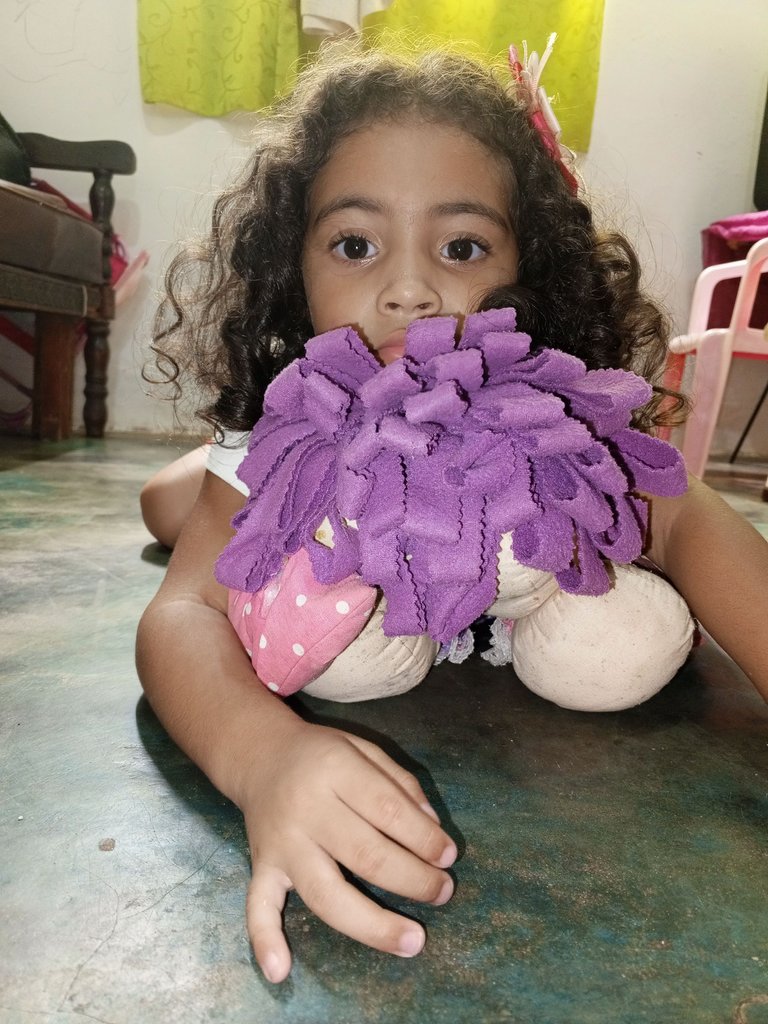
Enseñar a los niños la importancia de devolver los objetos, juguetes y cosas que no son suyas es de suma importancia, tanto para los niños porque los enseñamos a qué no deben quedarse con cosas que no nos pertenecen, y, por otro lado, nuestra imagen como padres porque un niño que a primeras se toma cosas que no les pertenecen hacen ver qué los padres no están haciendo un buen trabajo.
Obviamente, no es fácil digerir que un niño a corta edad este "robando" sin embargo, es importante evaluar el porqué el niño tiene este tipo de conductas, a veces los niños lo hacen por inocencia, les gusta un juguete y se sienten en la libertad de tomarlo y llevarlo porque creen que les pertenece; al igual que está el otro punto en el que se puede tener alguna patología o deseo desenfrenado por querer agarrar algo que no le pertenece.
Teaching children the importance of returning objects, toys and things that are not theirs is of utmost importance, both for the children because we teach them that they should not keep things that do not belong to us, and, on the other hand, our image as parents because a child who first takes things that do not belong to them shows that parents are not doing a good job.
Obviously, it is not easy to digest that a child at a young age is "stealing" however, it is important to evaluate why the child has this type of behavior, sometimes children do it out of innocence, they like a toy and feel free to take it and take it because they believe it belongs to them; just as there is the other point in which they may have some pathology or unbridled desire to want to take something that does not belong to them.
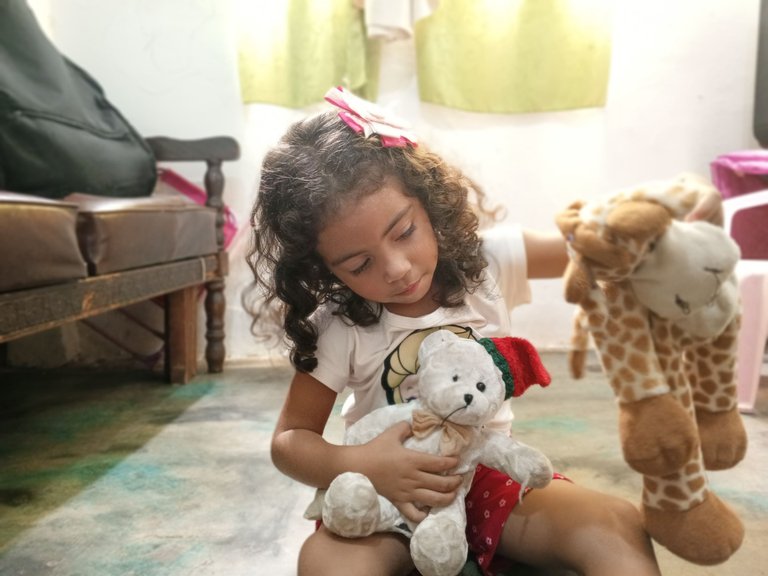
Les compartiré la siguiente anécdota:
Hace muchos años (aproximadamente unos 17 años) en mi casa una prima solía visitarnos muchísimo, y de verdad que me gustaba su compañía, era una niña con la que me sentía a gusto y poder jugar, hablar y maquillarme con ella era toda una aventura.
El problema era que cada vez que venía a casa muchas de mis cosas se desaparecían, llegaba a pensar que era por descuidos míos y que las dejaba fuera de su lugar o cosas así, pero pensar que era mi prima quien las tomaba no pasaba por mi cabeza.
Hasta un día en la que mi mamá y yo notamos que ella estaba extraña, estaba como ansiosa, nerviosa, quería irse muy rápido a su casa, la verdad es que era una conducta muy extraña en ella, y por cosas de la vida entro al cuarto y veo su morral en la cama y dentro de él se encontraban cosas mías, que ni siquiera sabía que a ella le gustaban o le llamaban la atención, y yo me sorprendí, y llame a mi mamá.
El fin de todo esto fue que en ese entonces mi prima fue diagnosticada con una condición llamada CLEPTOMANÍA, es una condición en la que la persona siente un deseo profundo de tomar cosas que quizás nunca jamás utilizará, pero no puede resistir el hecho de tomarlas.
Mi prima estuvo asistiendo a terapias y sesiones para controlar esa condición, el punto es que gracias a que logramos detectar esa situación en casa ella actualmente está muy bien, más bien a veces recordamos esos momentos y nos reímos
Ahora...
I will share the following anecdote with you:
Many years ago (approximately 17 years ago) in my house a cousin used to visit us a lot, and I really liked her company, she was a girl with whom I felt at ease and being able to play, talk and make up with her was an adventure.
The problem was that every time she came home many of my things disappeared, I used to think that it was because of my carelessness and that I left them out of place or things like that, but the thought that it was my cousin who took them did not cross my mind.
Until one day when my mom and I noticed that she was strange, she was anxious, nervous, she wanted to go home very fast, the truth is that it was a very strange behavior in her, and because of life I went into the room and I saw her backpack on the bed and inside it were my things, that I did not even know that she liked or called her attention, and I was surprised, and I called my mom.
The end of all this was that at that time my cousin was diagnosed with a condition called CLEPTOMANIA, it is a condition in which the person feels a deep desire to take things that maybe they will never ever use, but they can't resist taking them.
My cousin was attending therapies and sessions to control this condition, the point is that thanks to the fact that we were able to detect this situation at home, she is currently doing very well, sometimes we remember those moments and laugh.
Now...
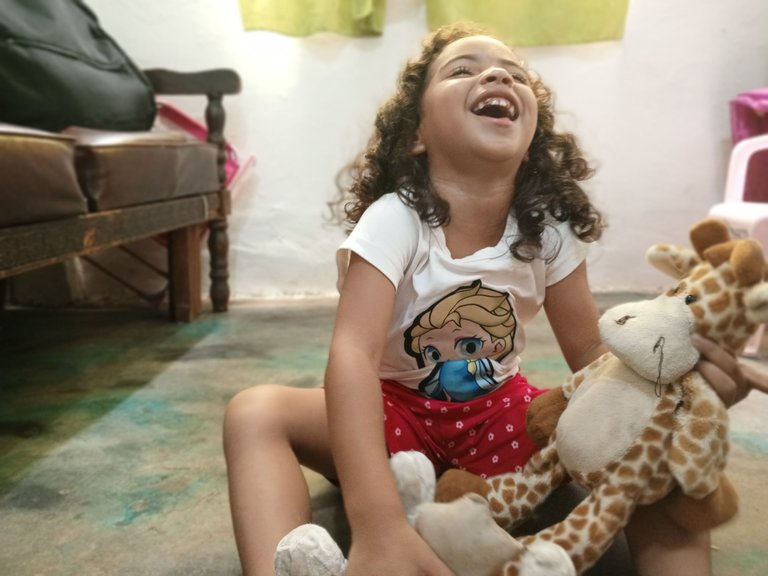
¿Cómo enseñar a los niños a que entiendan de que hay cosas que no les pertenecen y que no deben llevarlas a casa?
El hecho de que un niño de 3 años tome un juguete por el cual se siente atraído no lo hace un ladrón, considero que son tan pequeños e inocentes para entender esos términos que calificarlos cómo uno es algo feo.
Mi hija está pronto a cumplir 4 años y la forma en la que le he enseñado el sentido del respeto es haciéndole saber que es suyo y que le pertenece al otro, aún a veces se hace difícil aprender las diferencias entre lo mío y lo tuyo, así que es una tarea diaria.
Me suele suceder que a veces va para la casa de su abuela y allí vive uno de sus primos más pequeños el cual tiene una caja de juguetes y ambos se ponen a jugar, allí pueden pasar muchas horas y cuando la voy a buscar ella quiere agarrar un bloque de Lego y traerlo a casa, yo lo que hago es verla y le digo: ¿qué es eso princesa? Y es como que accionará en ella algo y decide dejarlo en la caja y dice: ¡es de mi primo!
Al principio me tocaba explicarle que esos juguetes no le pertenecían y que no debía llevarlos a casa porque eran de su primito, y ella lloraba porque no entendía nada de lo que le decía jajajaja lo importante es mantener la constancia en enseñarles.
How do you teach children to understand that there are things that do not belong to them and that they should not take them home?
Just because a 3 year old takes a toy that they are attracted to does not make them a thief, I feel that they are so young and innocent to understand those terms that to label them as one is ugly.
My daughter is soon to be 4 years old and the way I have taught her the sense of respect is by letting her know that it is hers and that it belongs to the other, even sometimes it is difficult to learn the differences between mine and yours, so it is a daily task.
It usually happens to me that sometimes she goes to her grandmother's house and there lives one of her younger cousins who has a box of toys and they both start playing, they can spend many hours there and when I go to pick her up she wants to grab a Lego block and bring it home, what I do is to see her and tell her: what is that princess? And it's like it will trigger something in her and she decides to leave it in the box and says: it's my cousin's!
At the beginning I had to explain to her that those toys did not belong to her and that she should not take them home because they belonged to her little cousin, and she cried because she did not understand anything I said hahahaha the important thing is to be consistent in teaching them.
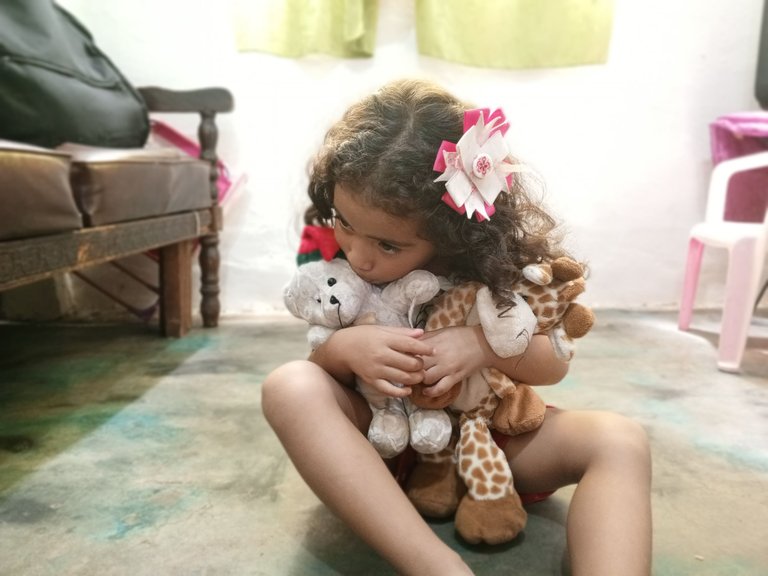
Ellos aprenderán poco a poco el respeto por las cosas ajenas, al igual que como padres debemos de estar atentos cuando nuestros hijos llegan con cosas que no les pertenecen a nuestra casa, por más pequeño que sea debemos de corregirles y enseñarles que eso que hicieron no está bien.
Se le debe instruir al niño que debe devolver aquello que agarro sin consentimiento y debe disculparse por su conducta, esto es algo que practicaba cuando mi niña tomaba algún juguete de su primo, y ¡vaya que funcionó! ☺️
Una de nuestras mayores tareas como padres es orientar el buen desarrollo de nuestros hijos, enseñarles que robar es malo, que tomar cosas sin el consentimiento de otra persona está mal, al ser tan pequeños piensan que lo que hacen está bien y hablo de niños inferiores a 4 años, considero que a mayor edad mayor conciencia de lo bueno o lo malo.
They will learn little by little the respect for other people's things, just like as parents we must be attentive when our children come to our house with things that do not belong to them, no matter how small they are we must correct them and teach them that what they did is not right.
The child should be instructed to return what he/she took without consent and should apologize for his/her behavior, this is something I used to practice when my daughter took some of her cousin's toys, and it worked! ☺️
One of our biggest tasks as parents is to guide the proper development of our children, teach them that stealing is bad, that taking things without the consent of another person is wrong, being so young they think that what they do is right and I am talking about children under 4 years old, I believe that the older they are the more aware of what is right or wrong.
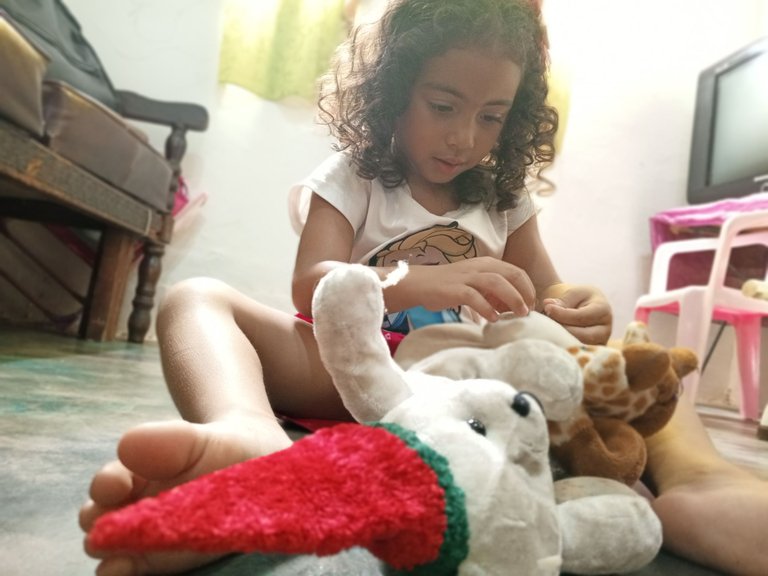
Al momento de corregirlos no mostrar que es una gracia o que lo que han hecho es motivo de risa o de broma, sino que realmente mostrar que hizo algo malo, y que sus malos actos tienen consecuencias, si es cierto que a veces hacen cosas que nos generan risa o gracia, pero es necesario mostrar carácter y empatía al momento de enseñar.
En la actualidad tenemos la gran ventaja de que podemos encontrar en internet muchas caricaturas que pueden enseñar a nuestros hijos sobre los valores, incluido el no robar, creo que es una de las mejores formas en la que podemos hablar a su conciencia y enseñar este importante valor, pareciera que no captan las cosas, pero créanme ellos allí mientras ven esa caricatura están asimilando todo lo que van a repetir más adelante.
Hasta aquí les comparto estas líneas hermosa comunidad, espero que les guste y que por favor puedan tener la libertad de compartir en los comentarios alguna anécdota que pueda servirnos en el proceso de crianza de nuestros niños.
Será un gusto poder leerlos. 🥳
When correcting them, do not show that it is a joke or that what they have done is a reason to laugh or joke, but really show that they did something wrong, and that their bad acts have consequences, it is true that sometimes they do things that make us laugh or laugh, but it is necessary to show character and empathy when teaching.
Nowadays we have the great advantage that we can find on the internet many cartoons that can teach our children about values, including not stealing, I think it is one of the best ways in which we can speak to their conscience and teach this important value, it seems that they do not grasp things, but believe me they there while watching that cartoon are assimilating everything that they will repeat later.
So far I share with you these lines beautiful community, I hope you like it and please feel free to share in the comments any anecdote that can help us in the process of raising our children.
It will be a pleasure to read them 🥳

🌌Imagen principal editada en Canva
📸Las fotografías son propias capturadas con mi teléfono Tecno Spark 10 pro
🚨Todo el contenido es contado desde mi propia experiencia, si desea mas información o un diagnóstico profesional consulte a un especialista.
...
🌌Main image edited in Canva.
📸Pictures are my own taken with my Tecno Spark 10 pro phone.
🚨All content is told from my own experience, if you want more information or a professional diagnosis consult a specialist.
A very good read, thank you for sharing. Indeed, we really need to start teaching them from when they are young so they will know how to differentiate right from wrong through our guidance.
It is a responsibility we have as parents to be able to guide our children and even more so in these situations. And of course to be attentive to these signs in order to help them.
I couldn't agree more. 😊
Wow, this topic is super important and I've never seen anyone here talking about this topic. I work in a nursery and unfortunately I see some situations like this, I get very upset and I talk to the child in question saying that they can't do it, but it's complicated because they do it again. Thanks for sharing 😊
Hello friend, it is a whole issue and as much as you want to educate the child from your workplace, unfortunately it is something that should be done by the parents at home.
There are behaviors in children that should be monitored, and parents should be attentive to these signs.
True
Mi hermana de pequeña le encanta tomar cosas de casa de mi abuela 😬 la solíamos etiquetar como registrona, se guarda los objetos que le gustaban bajo su ropa 😑 cuando mu mamá se daba cuenta los regresaba y muchas veces antes de irnos a casa la revisaba para ver si no llevaba algo escondido, de grande lo dejo de hacer 🙂 pero fue una situación de mucho estrés para mí mamá
Hola amiga, si a veces son conductas que uno como padre le causa preocupación porque le damos en casa una buena educación, pero ignoramos el porque hacen esas cosas.
Y pasamos la gran vergüenza con nuestros hijos porque desconocemos ciertas cosas, que bueno que tu hermana pudo superar esa etapa.
Imagino a tu mamá con pena 😂